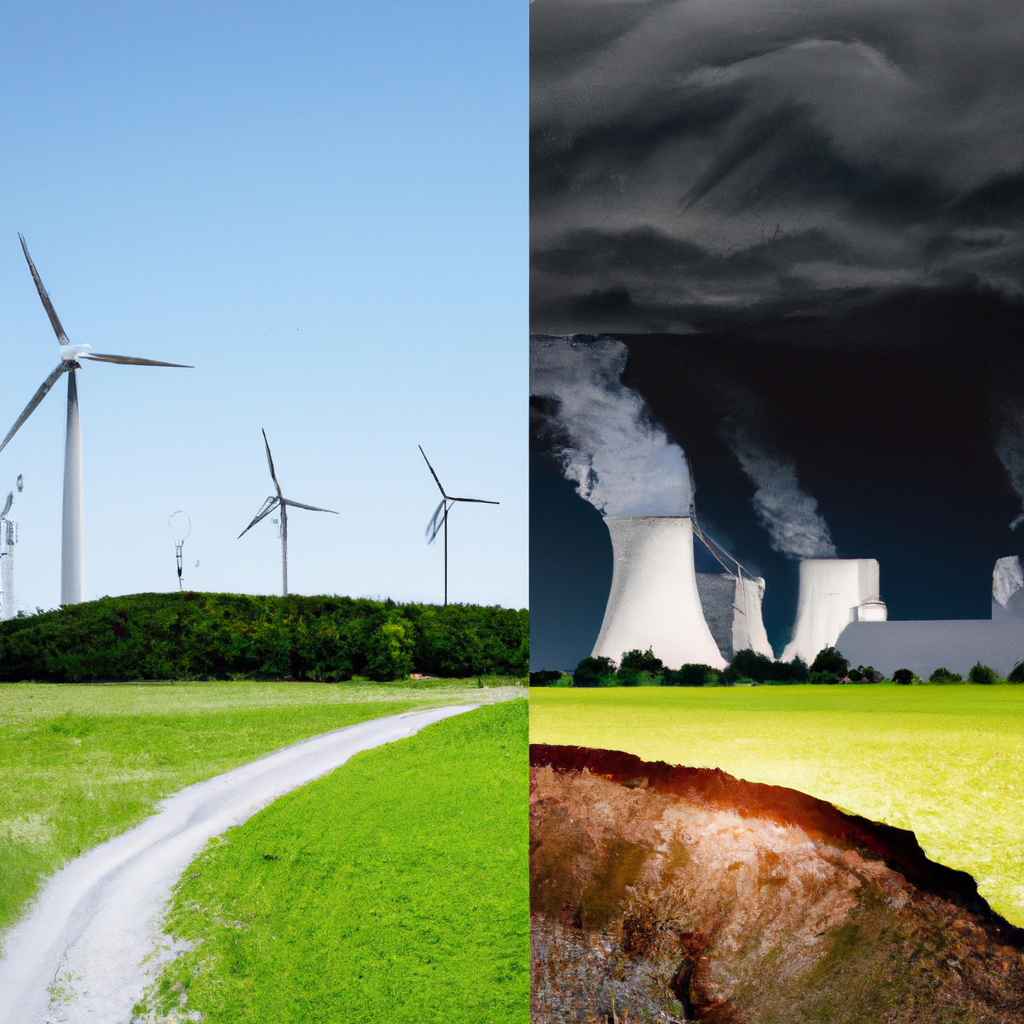The energy sector has been rapidly growing and evolving over the past few decades. With the increasing demand for energy, there has been a need to develop new and cleaner sources of energy. Nuclear energy and renewable energy are two popular sources of energy that have been growing in popularity. Both types of energy have their advantages and disadvantages, and it is essential to understand the differences between them to make an informed decision about which is the better choice for the environment.

What is Nuclear Energy?
Nuclear energy is generated by splitting uranium atoms to release energy. The process of generating nuclear energy involves nuclear reactors, which are designed to control nuclear reactions. Nuclear reactors produce heat, which is used to generate electricity. The process of generating nuclear energy produces very little carbon dioxide and other greenhouse gases, making it a cleaner source of energy compared to fossil fuels.
Advantages of Nuclear Energy
One of the significant advantages of nuclear energy is that it is a cleaner source of energy compared to fossil fuels. Nuclear energy produces very little carbon dioxide and other greenhouse gases, making it an ideal choice for reducing carbon emissions. Nuclear energy is also a reliable source of energy and can generate a large amount of electricity from a single nuclear reactor. Additionally, nuclear energy can be used to power large industries and can reduce reliance on imported oil.
Disadvantages of Nuclear Energy
Despite the advantages of nuclear energy, there are also several disadvantages that must be considered. One of the most significant disadvantages of nuclear energy is the high cost of building and maintaining nuclear reactors. Nuclear reactors require a significant investment in infrastructure, and the cost of decommissioning nuclear reactors is also high. Another disadvantage of nuclear energy is the risk of nuclear accidents, which can have catastrophic consequences for the environment and human health. Finally, nuclear waste disposal is a significant concern, as nuclear waste can remain radioactive for thousands of years.
What is Renewable Energy?
Renewable energy is energy that is generated from natural resources that can be replenished over time. Renewable energy sources include solar, wind, hydro, and geothermal energy. Renewable energy is an attractive alternative to fossil fuels because it is a cleaner source of energy and can be replenished over time.
Advantages of Renewable Energy
The primary advantage of renewable energy is that it is a cleaner source of energy compared to fossil fuels. Renewable energy sources produce very little carbon dioxide and other greenhouse gases, making them ideal for reducing carbon emissions. Additionally, renewable energy sources are abundant and can be replenished over time. Finally, renewable energy sources can be used to power small and large industries, reducing reliance on imported oil.
Disadvantages of Renewable Energy
Despite the advantages of renewable energy, there are also several disadvantages that must be considered. One of the most significant disadvantages of renewable energy is the high initial cost of installation. Renewable energy sources require a significant investment in infrastructure, and the cost of maintenance can also be high. Additionally, renewable energy sources can be weather dependent, meaning that they may not be reliable in certain areas. Finally, renewable energy sources require a significant amount of space, which can be a challenge in densely populated areas.
Which is the Better Choice for the Environment?
Both nuclear energy and renewable energy have their advantages and disadvantages, and the choice of which is better for the environment depends on several factors. For example, nuclear energy may be a better choice for large industries and areas with high energy demands, while renewable energy may be a better choice for smaller communities and areas with abundant natural resources.
Ultimately, the choice of which is the better choice for the environment depends on several factors, including the cost, reliability, and environmental impact of each source of energy. It is essential to weigh the advantages and disadvantages of each source of energy carefully before making an informed decision about which is the better choice for the environment.







